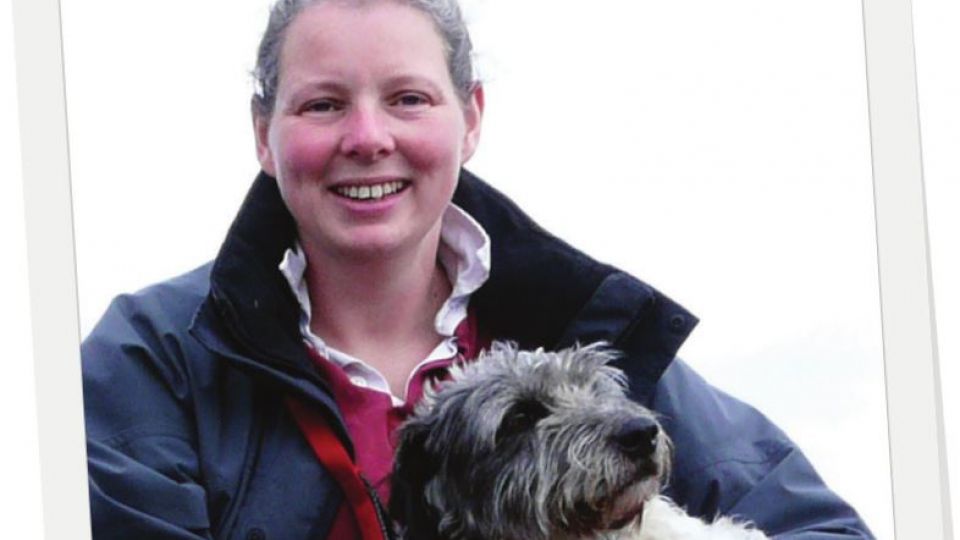
Becky Shaw’s thyroid problems and food allergies were misdiagnosed for years as a mental illness for which she was prescribed powerful antipsychotics and antidepressants.
What do you do with the ‘difficult’ patient, the one with a host of health problems that don’t seem to make any sense? Easy, you define them as someone with mental health problems, have a specialist clinic take care of them, and give them antidepressants and antipsychotics to keep them quiet. That’s how Becky Shaw was treated. For nearly 25 years, her Hashimoto’s disease (underactive thyroid) and chronic food allergies went undiagnosed-and that, and the combination of powerful drugs she was taking, resulted in an array of conditions that included irritable bowel syndrome (IBS), polycystic ovarian syndrome (PCOS), chronic fatigue, hypertension (high blood pressure) and diabetes. Today, at the age of 40, Becky is free of all drugs and symptoms, other than feeling occasional fatigue, and is expecting her first child. She’s written four books about health and the way she was treated, and now runs a support group for people diagnosed with
mental health issues. “It’s extraordinaryto see just how many supposed mental health problems have a physical cause, such as a food intolerance,” she says. She recently helped six people whose ‘mental’ symptoms all disappeared once their food sensitivities were identified.
Becky’s health deteriorated after she their toll, Becky was in a permanent ‘mental smog’ and sleeping for nearly 24 hours a day. Her father was told she would never live an independent life and certainly couldn’t have children. Three different dietitians at the hospital recommended that Becky be put onan exclusion diet, as they suspected her problems could be related to food
intolerance. The signs were certainly there: her stomach distended by 15 cm after eating hospital food, and she was unable to keep fluids and food down. She also suffered from anal bleeding.
The turning point came when her partner visited her one day at the mental health ward. As a food chemist, he was very familiar with food allergies and intolerances. There by the side of her bed was a bottle of lime cordial, which contained aspartame, the artificial sweetener used in diet drinks. At the time, Becky was on a low-fat diet because the doctors were convinced her obesity was caused by overeating and a diet of fatty foods. He worked with Becky and removed all gluten from her diet. Within a few months, she was improving and felt able to do her own research. One of her resources was WDDTY as she began to understand what was really wrong with her, and she started supplementing with omega-3 fatty acids. “I came off all the drugs at once, and that was
a big mistake. I know now that you have to come off these powerful medications very gradually, and have good support around you when you do.” She created the Rushcliffe Mental Health
Support Group so that others wouldn’t have to endure what she went through, and she has also set up a website-www.rethinkinghealth.org.uk-to provide information on alternatives.
So what did the doctors-who misdiagnosed and mistreated Becky for nearly 25 years-make of her astonishing turnaround? They’re certainly not curious to know, but she had a clue as to what they really thought when she saw her medical notes.
Where it stated she had a food intolerance, one doctor had scrawled the words: “Smacks of quackery”. was raped at the age of 15. Soon after, she developed Hashimoto’s disease, where the immune system attacks the thyroid gland. The problem was never diagnosed even though she developed a goitre (swelling of the thyroid gland), one of the classic signs of the disease. Her mother also suffered from the disease. She struggled on, and went to university to study science while also training to be a teacher. As part of her studies, she travelled to Nigeria to teach. Soon after she arrived, civil war broke out, and she was captured and held hostage for three months. The captives weren’t given proper food or water, and the group suffered from dysentery. Becky was eventually released after a ransom payment was made. Back in the UK, her Hashimoto’s symptoms worsened and she was suffering from anxiety attacks-not surprising, given
her ordeal in Nigeria. Her doctors were perplexed and eventually diagnosed Becky as a mentally ill patient. She was put on antidepressants and antipsychotics and, for the first time in her
life, she became suicidal and began harming herself. Instead of blaming the behaviour on the drugs, the doctors felt her actions merely confirmed that their diagnosis had been correct. Becky went on to spend the next years in and out of mental health institutions as her weight ballooned to nearly 30 stone (420 lb, or 190 kg). At one stage, she was unable to pass any urine and the doctors drained 1.4L from her-which they decided was also a symptom of her mental health issues. “How they thought my holding onto that amount of urine was a mental problem is beyond
me,” she later said. Throughout those years as the drugs took “It’s extraordinary to see just how many supposed mental health problems have a physical cause, such as a food intolerance”
Special offer
Becky has written a complete guide to living wills and how you can get it right without needing a lawyer. The Advanced Statements Workbook is offered to all WDDTY readers for just lb5-the usual price is lb10-and you can claim your discount by visiting www.rsgbooks.com and clicking on ‘WDDTY OFFER’.
What do you think? Start a conversation over on the... WDDTY Community